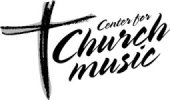Center For Church Music, Songs & Hymns

Browse Hymns:
Browse by:
We Invite You To Sing
To sing with us, 1) Click on the music thumbnail icon to view the sheet music (you don't have to read music!), and 2) Engage the audio file by clicking on the Real audio or Mp3 file.
Find Songs And Hymns
Facts:
- Lyricist: Charles Wesley
Lyrics Date: 1739
Key: C
Theme: Jesus Christ
His Resurrection
- Composer: Lyra Davidica
Music Date: 1708
Tune: EASTER HYMN
Meter: 7.7.7.7.alt
Scripture: John 20:20
Devotional:
Our hymn this week is one of the best known of all the Easter hymns.
Its text recites the fact of the Resurrection: "Christ the Lord is risen today;" It announces the result:"Christ has opened paradise;" And calls on all creation to announce this grand news: "Sing, O heav'ns and earth reply, 'Alleluia!'"
And so these words have become a natural choice for the opening hymn on Easter morning. But, it may be even more appropriate at the end of a service:
"Soar...
See More
Our hymn this week is one of the best known of all the Easter hymns.
Its text recites the fact of the Resurrection:
"Christ the Lord is risen today;"
It announces the result:"Christ has opened paradise;" And calls on all creation to announce this grand news:
"Sing, O heav'ns and earth reply,
'Alleluia!'"
And so these words have become a natural choice for the opening hymn on Easter morning. But, it may be even more appropriate at the end of a service:
"Soar we now where Christ has led,
Following our exalted Head:
Made
like Him,
Like Him we rise..."
"I believe," states the historic Apostles Creed, "In the...resurrection of the body." Unfortunately, many Christians believe this is a reference to the raising of Christ on the first Easter, and that the promise to the rest of us is to float through eternity as disembodied spirits. But Christ's resurrection was affirmed in the Apostles Creed in an earlier section: "On the third day, He rose again from the dead." What was given Christ is also promised to those who believe in Him: perfect bodies (real flesh, blood, muscles) reunited with perfected souls enjoying a new heaven and a new earth. And so the apostles Creed intends: "I believe in the...resurrection of MY body." Wow!
But being raised with Christ also affects the here and now.
"Since, then, you have been raised with Christ, set your hearts on things above...put to death...whatever belongs to your earthly nature...clothe yourselves with compassion, kindness, humility and patience...forgive as the Lord forgave you...put on love. Let the peace of Christ rule...and be thankful." (St. Paul in Colossians 3)
A delightful, and true, story tells of a church secretary in New Jersey who was enjoying a day off at the shore. A young boy approached her and boldly asked: "Are you a Christian?" "Yes." "Do you go to church?" "Do you read the Bible?" More "yes" answers. "OK, then, will you hold my money while I go swimming?" He expected a higher standard of honesty from Christians and he got it! May our "here and now" be lived today in the light of the risen Christ!
See Less
Hymn Story:
Charles Wesley wrote this hymn in 1739, in celebration of the first service of London's first Wesleyan Chapel. This chapel was known as the Foundry Meeting House, as it was a deserted foundry. Charles Wesley purchased the building to house his growing number of converts.
Originally published in Hymns and Sacred Poems, 1739, this hymn was eleven four-line stanzas long. Martin Madan's Collection of Psalms and Hymns, 1760, included eight stanzas, with many lines rearranged. Only fou...
See More
Charles Wesley wrote this hymn in 1739, in celebration of the first service of London's first Wesleyan Chapel. This chapel was known as the Foundry Meeting House, as it was a deserted foundry. Charles Wesley purchased the building to house his growing number of converts.
Originally published in Hymns and Sacred Poems, 1739, this hymn was eleven four-line stanzas long. Martin Madan's Collection of Psalms and Hymns, 1760, included eight stanzas, with many lines rearranged. Only four stanzas are commonly sung now.
The "Alleluia" which we sing at the end of each line was not part of the
original hymn, it was added later by some unknown editor, to better fit the
tune. "Alleluia," or "Hallelujah" is a common expression of praise, "Praise ye
the Lord," from the early Christian Church. Early Christians would greet each other Easter morning, "Alleluia, the Lord is risen!" Jerome, who died in 420, was an important leader of the early church, who translated the Bible into Latin. He wrote that the very ceilings of houses of worship were often shaken with the reverberating "Hallelujahs" when believers sang their praises to God.


